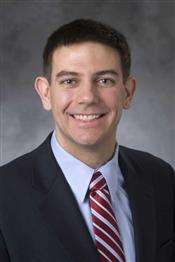Program Information
Empowering Future Clinical Leaders: Professionalism in Medical Physics Graduate Education
J M Wilson1,2*, A Kapadia1, E Samei1,2, (1) Duke University, Durham, NC, (2) Duke University Medical Center, Durham, NC
Presentations
MO-DE-201-1 (Monday, July 31, 2017) 1:45 PM - 3:45 PM Room: 201
Purpose: Medical physics graduate education has historically produced excellent scientists. The importance of professionalism and leadership in our field has been highlighted by two AAPM initiatives: Leadership Academy and MedPhys 3.0. Graduate education must also evolve by incorporating professionalism and leadership training. Our purpose was to devise a cohesive method to meaningfully integrate these within a traditional medical physics education.
Methods: We convened a task force of current medical physics faculty, students, MDs, alumni, and outside experts to design a professionalism enhancement curriculum. Teleconferences, interviews, and surveys were conducted to determine pertinent topics for emerging medical physics clinical scholars. Topics and practical experiences were prioritized for students but are also relevant to faculty. Three professionalism-related efforts for our students were introduced beginning Fall 2016.
Results: Three top priorities were identified for professionalism enhancement of graduate students: Communication (oral and written); Team membership and dynamics; and Project management. A Day-1 Professionalism Workshop was implemented during new student orientation. An offsite 3-day leadership retreat was conducted for students, faculty, MDs, and alumni (80 attendees, 2016). A professionalism course was incorporated into the second-year curriculum (24 MS and PhD students, 2016). Post-semester surveys showed student interest in concrete skills (e.g., “CVs, Resumes, and Cover Letters” ranked as a most valuable session by 67%), but less concrete skills were split (e.g., “Diversity, Equity, and Inclusion” ranked as most valuable session by 17% and as least valuable session by 42%). Overall students expressed clear and stronger understanding of professionalism.
Conclusion: Leadership built upon professional interactions and demeanor has been recognized as integral to the advancement of medical physics. We have designed and implemented a graduate curriculum intended to compliment the objectives of AAPM initiatives. Exposure to professionalism and leadership coupled with traditional medical physics graduate education would enhance our profession even more.
Contact Email:
